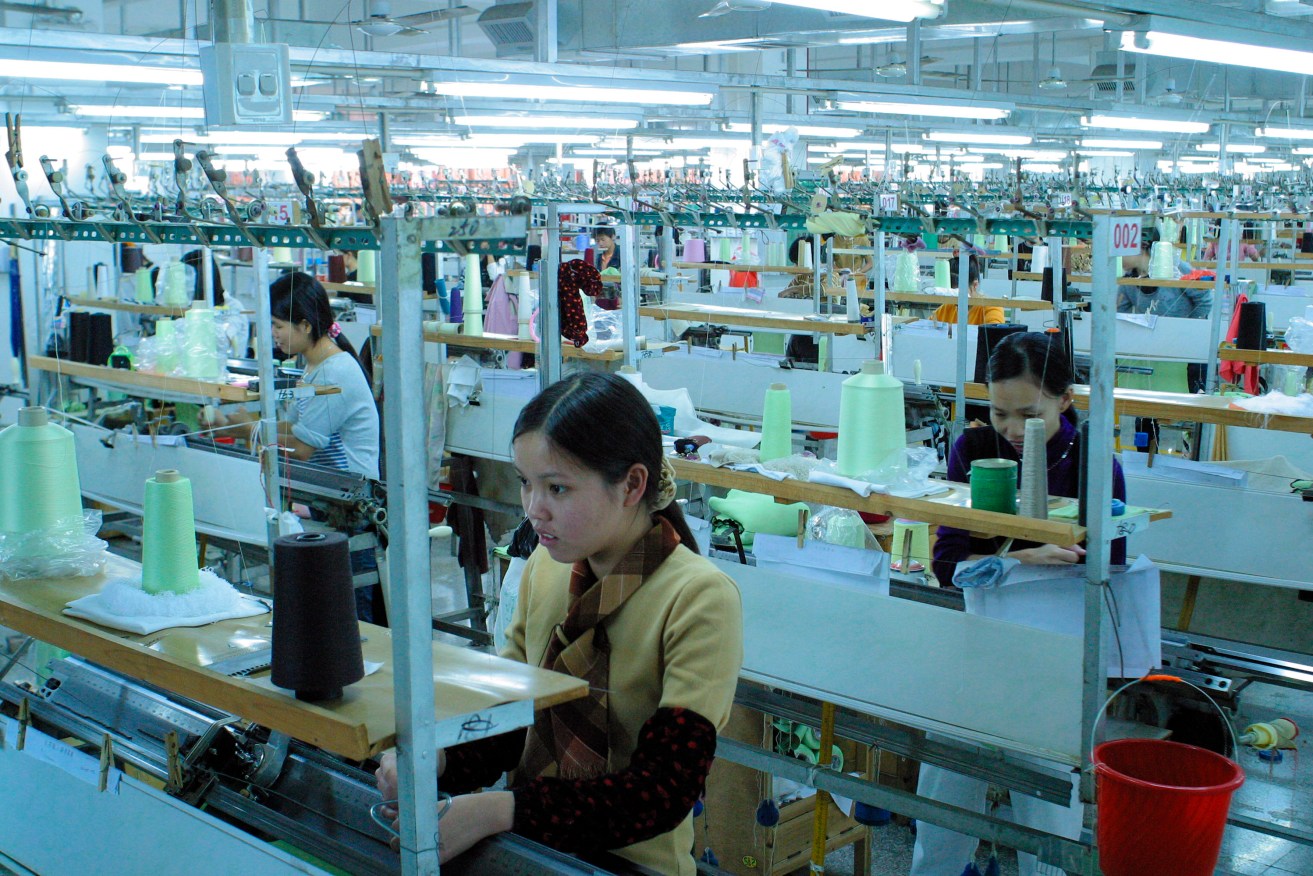Australian fashion brands use foreign workers paid 62 cents an hour: report
Paying for essentials like food, housing, healthcare and education should be covered by a basic living wage, but some Australia-based brands aren’t ensuring that for workers making their clothes in foreign countries, a new report says.

Photo: AAP/David Ewing
Ahead of the Christmas season, Oxfam Australia has released it’s Naughty or Nice report – a list of fashion brands it claims have failed to make a commitment to ensuring factory workers in countries like Vietnam or Bangladesh are paid a living wage.
Some of the big names appearing on the list include Just Jeans, Peter Alexander, Jay Jays, Myer, Rivers, Katies, W. Lane and Big W.
The Spanish-owned Zara is also on this list for failing to publish the factories where its clothes are made.
“Women who spoke to us were being paid as little as 62 cents an hour in Bangladesh,” Sarah Rogan, the head of Oxfam’s Australia Labour Rights group said.
“They’re unable to afford treatment when they fell sick, to send their children to school, to make their pay stretch to put enough food on the table and being separated from their children.”
Oxfam has been monitoring some of the most well-known Australian clothing retailers and some of the largest international brands in the local market.
“We selected the companies by examining their size and market share in Australia and looking at their target markets,” Rogan said.
“We’ve been in communication with these brands over the two years of the campaign. Ahead of publishing this list we wrote to each company explaining what we were asking them to do.”
From these conversations and push for commitment towards the payment of living wages, the brands on the nice list have all come on board by making credible commitments.
Some of the brands contacted by AAP are yet to respond to the report.
The research commissioned by Oxfam and conducted by Deloitte Access Economics says women aged 18 to 25 make up 80 per cent of the factory workers in the global garment industry.
The report affirms that the local minimum wage in Bangladesh equates to just 39 Australian cents an hour, 64 cents in Vietnam and 93 cents in China.
If big companies passed the entire cost of paying living wages to all workers on to consumers, the price increase of a T-shirt in Australia would be 10 cents, the report estimates.
“There is room within their margins for companies to lift the amount they pay to suppliers for factory wages,” Rogan said.
“A living wage is not a luxury, but is a minimum that all working people should be paid if they are to escape the cycle of poverty.”
-AAP
Want to comment?
Send us an email, making it clear which story you’re commenting on and including your full name (required for publication) and phone number (only for verification purposes). Please put “Reader views” in the subject.
We’ll publish the best comments in a regular “Reader Views” post. Your comments can be brief, or we can accept up to 350 words, or thereabouts.
InDaily has changed the way we receive comments. Go here for an explanation.




